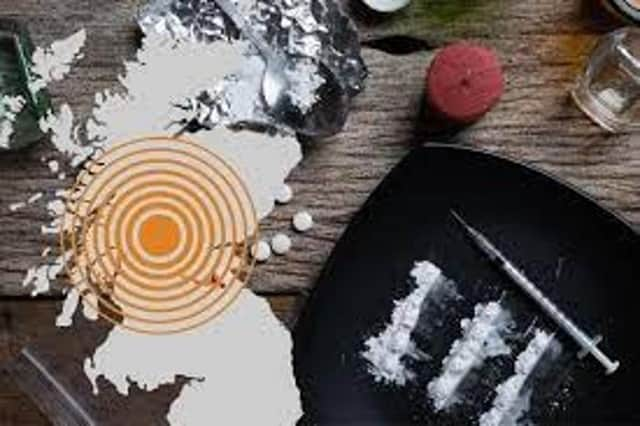Concerns killer drugs could sweep across Scotland


Concerns are being raised that a drug which has killed tens of thousands of people is becoming more prevalent in Scotland.
Synthetic opioids such as fentanyl and captagon are between 20 and 50 times stronger than heroin, and 100 times stronger than morphine.
Advertisement
Hide AdAdvertisement
Hide AdThe use of this drug has swept across the US – in 2012 just over 2,500 people had died as a result of using synthetic opioids, predominantly fentanyl, but by 2022 that number had jumped to 73,500.
There is now a “global heroin shortage” caused by the Taliban takeover of Afghanistan.
Almost all heroin used in Europe comes from Afghanistan, but last year the Taliban banned opium poppy cultivation.
It takes around 18 months for poppies to become heroin on the European markets, and last year’s ban is now causing a global heroin shortage.
The Scottish Lib Dems now say they are concerned Scots will turn to synthetic opioids in greater numbers to fill this gap.
Party leader Alex Cole-Hamilton said: “There is an epidemic of synthetic opioid misuse in the US that has not been realised on our shores, but that may be changing.
“We know that heroin mixed with fentanyl is already being circulated in Scotland .
“Based on police seizures, we are already seeing an increase in the prevalence of nitazenes, a synthetic opioid similar to fentanyl.
Advertisement
Hide AdAdvertisement
Hide Ad“Nitazenes are often convincingly disguised as other substances, so users are unaware they are taking it.”
He said in the last six months this has been linked to the “tragic” deaths of 54 people in the UK, including nine in Scotland.
Mr Cole-Hamilton added: “In order to prevent the tragic loss of yet more lives, it is clear that we need to prepare now for an increase in the supply and use of these substances in Scotland.”
He raised this issue at a cross-committee meeting on drug deaths and drug harm in November, but has now written to Drugs Policy Minister Elena Whitham to urge the government to put in place interventions to stop the spread of synthetic opioids across Scotland.
Ms Whitham says she is “very concerned” about the growing threat synthetic opioids are posing, particularly the increased use of nitazenes.
She is now urging drug users to carry extra naloxone kits, which can reverse the effects of an overdose.
Ms Whitham said: “We know these are being found in a range of substances and bring with them increased risks of overdose, hospitalisation and death.
“As part of our £250 million national mission on drugs we have developed our surveillance abilities to identify potential threats and Public Health Scotland’s rapid action drug alerts and response reports are a vital tool in providing an early warning of emerging drug trends to help identify actions.”
Advertisement
Hide AdAdvertisement
Hide AdShe added: “We’re also committed to delivering drug-checking facilities which would also enable us to respond faster to emerging trends.
“We’re working towards a pilot scheme licensed by the UK Government and we continue to consider international evidence.”
Comments
Want to join the conversation? Please or to comment on this article.